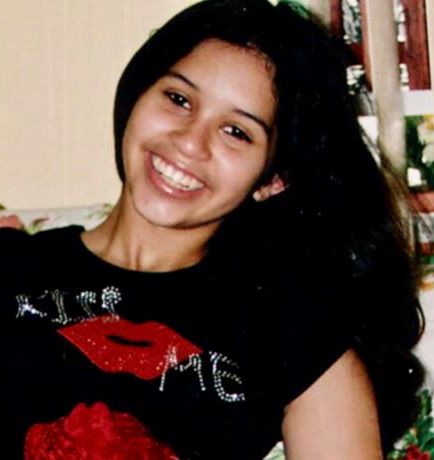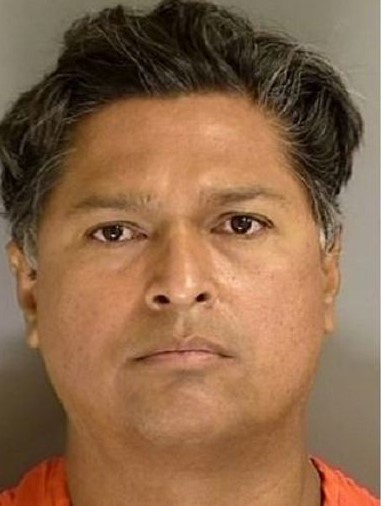A bright, happy teenager is found murdered in her bedroom. The most likely suspect denies his involvement, and there is no evidence to tie him to the crime. Will Dilcia Mejia ever get justice?
Episode Media


Episode Sources
- Teen found dead in her bedroom
- School helping pals of slain teen cope
- Slaying of girl, 16, in a trailer investigated
- Girl, 16, stabbed to death, police say; motive unclear
- Mother Asks For Public’s Help In 2004 Murder Of Teen Daughter
- Miami-Dade Police Department News Release
- Arrest made in 2004 slaying of Miami Beach High student
- Dilcia Mejia’s killer caught after 16 years, cops say – South Florida Sun-Sentinel
- Stepfather murders teen girl after making improper sexual advances, police say
- Stepfather Arrested in Connection to Cold Case Murder of 16-Year-Old Stepdaughter
- Stepfather Arrested in 2004 Cold Case Murder of Miami-Dade Teenager
- Miami-Dade Police Arrest Raul Mata In 2004 Cold Case Murder Of Teen Stepdaughter Dilcia Mejia
- Who is Raul Mata? DNA in fingernails helps nab stepdad who murdered 16-year-old girl in 2004 Miami cold case
- Man accused of killing stepdaughter in 2004 commits suicide while in custody
- Raul Mata: 5 Fast Facts You Need to Know
- Dilcia Mejia (1988-2004)
Episode Transcript
Welcome back to Bite-Sized Crime! This week’s case focuses on a young woman whose murderer escaped justice for years, but whose family never gave up on finding the truth. This episode includes some graphic descriptions, so listener discretion is advised.
Sixteen-year-old Dilcia Mejia was a bright, happy teenager growing up in Miami, Florida. Her parents had emigrated from Honduras in the 1980s, and Dilcia was born and raised in the United States. In 2004, Dilcia was living in Miami’s Colonial Acres mobile home community with her mother, Delcia Oliva, and her stepfather, Raul Mata.
Dilcia was a sophomore at Miami Beach High School; a good student who rarely got in trouble. She studied hard and got good grades, and she was looking towards her future, deciding between a career as a flight attendant or a police detective. Dilcia had dreams of traveling the world, and she was determined to work hard to achieve her goals.
On the evening of September 16th, 2004, Dilcia was at home watching television. Her mother said good night to her around 11pm, then went to bed; she had to be up early for work the next morning. Around 5:30am, Mrs. Oliva left the quiet house. She didn’t check on her daughter, believing her to be asleep and not wanting to wake her.
But just hours later, Dilcia’s stepfather was calling 911 and begging police to come to their home. “We need someone to come here. My daughter. My daughter. Somebody killed my daughter.”
When police responded to the scene, they found Dilcia’s body in her bedroom, covered in blood with a slash wound across her throat. The scene was gruesome, but the rest of the home seemed untouched. Nothing had been taken, and there were no signs of forced entry.
When questioned, Raul Mata told police that he had left the house around 7:45 that morning, returning 90 minutes later, when he found Dilcia and called 911. Detectives asked Raul about the scratches and bruises on his arms and his swollen thumb. Raul said he had fallen into Dilcia’s dresser in his panic at finding her body. He had no reason to hurt Dilcia, he was just as shocked as everyone else at what had happened.
The medical examiner’s office ruled Dilcia’s death a homicide. The Miami-Dade Police Department investigated every lead, questioning Dilcia’s friends, and even talking to teachers and staff at Miami Beach High School. Dilcia had gotten into a fight a few days before her death – could that have had anything to do with her murder? Detectives quickly ruled that theory out. Dilcia had not instigated the fight; two girls at school had jumped her and the altercation resulted in nothing more than a few scratches and wounded egos. Due to the school’s zero tolerance policy, all three girls had been suspended. School administrators said that Dilcia was not involved in any drug or gang activity, and the fight was the first time she had gotten into any real trouble.
Police also canvassed the Colonial Acres community, asking neighbors for any information about Dilcia or what they may have seen or heard on the morning of September 17th. One such neighbor, a teenage boy named Francisco, said he hadn’t seen anything, but, “She was a smart girl, and she would’ve fought back. Whoever hurt her is probably walking around with scratches and bruises.”
Detectives did their due diligence, investigating any tips that came their way. But all roads seemed to lead back to Dilcia’s stepfather, Raul Mata. Despite his supposed panic when he found Dilcia’s body, Raul didn’t seem that upset about Dilcia’s death during his interviews with police. He described his relationship with Dilcia as strained and said that she had a “dislike” for him. He even went so far as to call her a liar, painting her as a troubled teen who fought her parents at every turn. Of course, we know that everyone reacts differently to grief, and Raul’s demeanor didn’t necessarily mean he was guilty. No matter how Raul came across to police, the fact remained that they didn’t have any concrete evidence to tie him to Dilcia’s murder.
Sadly, years passed with no new leads, and Dilcia’s case went cold. Raul and Delcia Oliva eventually divorced, and Raul moved to Watsonville, California, where he remarried and had a son. He got his nursing license and worked in the emergency room at Watsonville Community Hospital. He carried on with life as usual.
Meanwhile, Dilcia’s mother continued to advocate for her daughter’s case. In a 2015 interview with local Miami news station CBS4, Delcia Oliva pleaded with the community for help in solving Dilcia’s murder. “I think about her all the time. The first few years were so difficult for me. I thought I was going to die. Every time when I go somewhere I remember her.”
The Miami-Dade Police Department released a cold case flyer with information about Dilcia’s case, and news outlets played the 911 call where Raul said that someone killed his daughter. Detective Robert Miller, who had been on the case since the beginning, told reporters that Raul Mata was still a suspect but they were committed to investigating every lead. “Even though common sense dictates that we look at Mata, I don’t want us to be oblivious to anyone else. I don’t want the people out there to focus all of their attention on Mr. Mata. If there is any bit of information out there that will lead us to another individual, I am all ears.”
Detective Miller told CBS4 that although the murder weapon was never recovered, they were performing new tests on other items found at the crime scene due to advances in DNA technology that weren’t available in 2004. However, it would be another 5 years before they were able to make a match.
In early 2020, Dilcia’s case was reassigned to Miami-Dade’s cold case squad. DNA technology had continued to improve, and they were finally able to pull DNA from underneath Dilcia’s fingernails. In May of 2020, police announced that they had a match – the DNA from the crime scene matched that of Dilcia’s stepfather, Raul Mata.
In an affidavit for Raul’s arrest, investigators also alleged a mountain of circumstantial evidence. It was known that Raul and Dilcia had a strained relationship, but detectives had also learned that Dilcia had confessed to a school counselor that Raul had made inappropriate sexual advances towards her. The school counselor had been on the verge of telling Dilcia’s mother about the incident when Dilcia was murdered.
On September 17th, 2020, exactly sixteen years after Dilcia’s death, Raul Mata was arrested and charged with first-degree murder. Miami-Dade police flew to California and partnered with the Watsonville Police Department to arrest Raul at the Hotel Paradox in Santa Cruz, where he was vacationing with his wife and children.
Naturally, Raul continued to deny his involvement, but Miami-Dade police detective David Denmark said, “His demeanor changed when we laid out the facts for him.”
Raul’s wife refused to believe the allegations against her husband, telling reporters, “I’m aware of his past and there’s never been a doubt in my mind about his character and he’s 1,000 percent innocent. He’s been a nurse in our community for the past 15 years saving lives in the emergency room. He’s an incredible person and he doesn’t deserve this. The truth will prevail.”
Dilcia’s family had a very different reaction. Her cousin, Trinidad Gonzalez, spoke at a press conference, saying, “It’s just the biggest relief that our family has had. It’s like a huge burden lifted from our shoulders. I am left speechless and I’m glad that Raul Mata can face the consequences of his gruesome actions.”
Miami-Dade State Attorney Katherine Fernandez Rundle said in a press statement, “An unsolved murder leaves a surviving family with an unending pain and fear that their loved ones will be forgotten. The charging of Raul Mata for the alleged 2004 murder of 16-year-old Dilcia Mejia should offer hope, not just for her family but for the families of all crime victims still yearning for justice.”
Raul was taken to the Santa Cruz County Jail and held without bail until he could be extradited to Miami, where he would face a life sentence and possible capital punishment if convicted. A court appearance was scheduled for October 5th, but before that could happen, Raul took matters into his own hands. On September 28th, just a few weeks after his arrest, Raul got hold of a pen and stabbed himself in the femoral artery. The corrections officer who found him performed life-saving measures until paramedics arrived. He was taken to the hospital for treatment, but on October 20th, 2020, Raul Mata died from complications due to his injury.
Although Dilcia’s family received some small measure of justice after years of waiting and wondering, it is a deeply unsatisfying end to such a tragic case. Dilcia tried to seek out help with the dangerous situation she found herself in, but unfortunately, help came too late. Her bright future was cut short by violence.
Unfortunately, this is the case for far too many young women. If you or someone you know is a victim of sexual violence, please call the National Sexual Assault Hotline at 1-800-656-4673.
